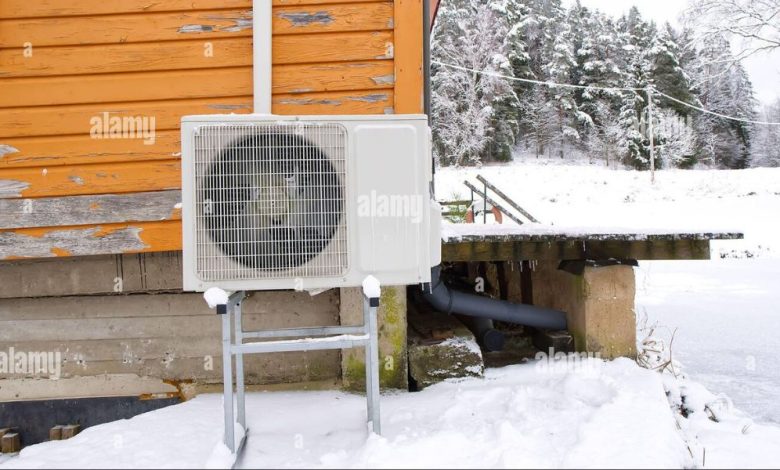Drinking Water Heat Pump: A Sustainable Solution for Hot Water Needs
Drinking Water Heat Pump: A Sustainable Solution for Hot Water Needs

Introduction
In the pursuit of sustainability and energy efficiency, the drinking water heat pump emerges as a game-changer in the realm of residential and commercial water heating. This guide explores the innovative technology behind drinking water heat pumps, their benefits, and considerations for those looking to adopt an eco-friendly and cost-effective solution for their hot water needs. trinkwasser wärmepumpe
1. The Ingenious Technology Behind Drinking Water Heat Pumps
Drinking water heat pumps leverage the principles of thermodynamics to efficiently heat water for various purposes:
- Heat Exchange: These systems extract heat from the surrounding air or ground and transfer it to the water, using a refrigerant cycle.
- Energy Efficiency: By harnessing renewable heat sources, heat pumps can provide hot water with significantly lower energy consumption compared to traditional heating methods.
2. Benefits of Drinking Water Heat Pumps
- Energy Efficiency: Drinking water heat pumps can be up to three times more energy-efficient than conventional water heaters, leading to substantial energy savings.
- Environmental Impact: With reduced reliance on electricity or gas, these heat pumps contribute to lower carbon emissions, making them environmentally friendly.
- Cost Savings: While initial installation costs may be higher, the long-term savings on energy bills often outweigh the investment, providing a cost-effective solution over time.
3. How Drinking Water Heat Pumps Work
- Heat Absorption:
- The heat pump absorbs heat from the air or ground using an evaporator coil filled with refrigerant.
- Heat Compression:
- The refrigerant is compressed, increasing its temperature, and the heated gas is passed through a condenser coil.
- Heat Transfer:
- The heat is transferred to the water, raising its temperature, while the refrigerant returns to the evaporator to repeat the cycle.
4. Considerations When Choosing a Drinking Water Heat Pump
- Climate: Heat pump efficiency can be influenced by climate. Consider the local climate to ensure optimal performance.
- Size and Capacity: Choose a heat pump with the right size and capacity to meet the hot water demands of your household or facility.
- Installation Site: Proper installation is critical. Ensure there is adequate space for the heat pump unit and that it complies with local regulations.
5. Popular Brands and Models
- Rheem Heat Pump Water Heater: Known for its efficiency and durability, Rheem offers heat pump water heaters with various capacities suitable for residential use.
- AO Smith Voltex Hybrid Electric Heat Pump: This model combines heat pump technology with traditional electric heating elements for optimal efficiency.
- Bosch Compress 3000 Heat Pump: Bosch’s heat pump offers quiet operation and is designed for easy installation, making it suitable for both residential and commercial applications.
6. Installation and Maintenance
- Professional Installation:
- It is recommended to have a qualified professional install the drinking water heat pump to ensure proper setup and performance.
- Regular Maintenance:
- Schedule regular maintenance, including cleaning coils and checking refrigerant levels, to maintain the efficiency of the heat pump.
- Air Flow Considerations:
- Ensure proper airflow around the heat pump unit, allowing it to efficiently extract heat from the surroundings.
7. Conclusion
A drinking water heat pump embodies the synergy of innovation and sustainability, offering an energy-efficient and environmentally conscious solution for meeting hot water needs. As you turn on your tap and experience the comfort of heated water, the drinking water heat pump silently contributes to a more sustainable and cost-effective future.
FAQs (Frequently Asked Questions)
- Can a drinking water heat pump be used in cold climates?
- Yes, modern heat pump technology is designed to operate efficiently in a wide range of climates, including colder regions.
- How much space is required for installing a drinking water heat pump?
- The space required depends on the model and capacity. Consult with the manufacturer’s guidelines or a professional installer to determine the appropriate space.
- What is the lifespan of a drinking water heat pump?
- With proper maintenance, drinking water heat pumps can have a lifespan of 10-15 years or more. Regular checks and timely repairs contribute to longevity.









